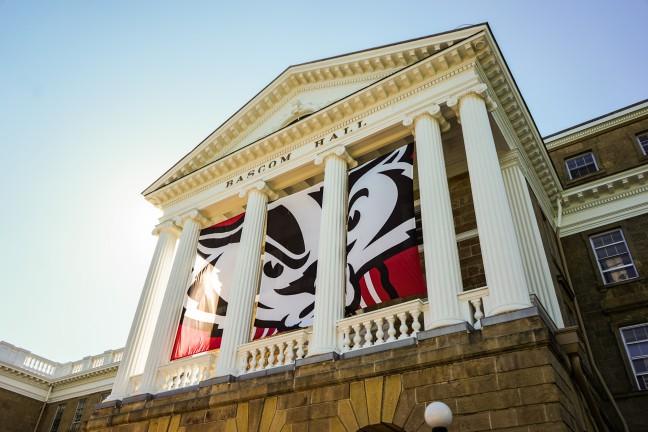The University of Wisconsin is reviewing the new guidelines released by United States Immigration and Customs Enforcement modifying the Student and Exchange Visitor Program for the fall semester.
New guidelines by ICE for the SEVP will create temporary rules for nonimmigrant students taking online classes at universities during the pandemic this fall, according to a Monday news release from ICE.
The modified rules say nonimmigrant students with F-1 and M-1 visas who take a fully online course load are not allowed to remain in the U.S. The rules don’t specify the amount of in-person credits students need to take in order to stay in the U.S.
The news release says students enrolled in a fully online course load must leave the country or find an alternative way to maintain their nonimmigrant status. Additionally, nonimmigrant F-1 students in schools adopting hybrid models of online and in-person instruction can take more than one class, or three credit hours, online.
“There will still be accommodations to provide flexibility to schools and nonimmigrant students, but as many institutions across the country reopen, there is a concordant need to resume the carefully balanced protections implemented by federal regulations,” a SEVIS broadcast message said. “The U.S. Department of Homeland Security plans to publish the procedures and responsibilities … in the near future as a Temporary Final Rule in the Federal Register.”
UW International Student Services said they are reviewing the guidelines and will release additional information soon, according to a statement on the UW Student Affairs website.
According to an email sent to UW international students on Tuesday, if the mode of instruction changes mid-semester, students enrolled in only online credits will not be allowed to stay in the country.
ISS is further investigating how this will impact UW’s current Smart Restart plan, which will move most courses to online-only formats after Thanksgiving break on November 26, according to the email. The email said courses’ mode of instruction will be finalized the week of July 20, and ISS will report the statuses of international students’ fall 2020 enrollment by August 4.
In a statement released yesterday, UW Chancellor Rebecca Blank said the new qualifications create “confusion and uncertainty” for international students on the UW campus and across the country.
The new rules would apply to 5,800 new and returning F-1 students at UW, Blank said in the statement. Though, Blank said they believe UW’s hybrid instruction model will allow international students to enroll in in-person classes, permitting them to remain in the U.S. this fall under the new guidelines.
“Universities across the country are in the process of sharing reopening plans that attempt to balance public health imperatives with guidance from federal and state governments to continue to reopen to the extent possible,” Blank said in the statement. “In instituting this rule, ICE fails to provide flexibility institutions and students may need to adapt to changing conditions, as we did during the spring semester.”
Today at 4 p.m., ISS will host a virtual town hall meeting for all campus partners about the situation for concerned students and individuals. Additionally, ISS will host a separate session specifically for international students tomorrow morning regarding the new guidelines and how it will impact nonimmigrant students’ academic studies at UW.
Blank said in her statement that UW encourages the federal government to re-examine and make changes to the plan. Blank said UW will work in coordination with their institutional partners across the state and country to stay or amend the new guidelines.
Additionally, Harvard and the Massachusetts Institute of Technology filed a lawsuit against the order today, according to the Washington Post.
“Since the start of the pandemic, international students have faced numerous difficulties and hardships, including travel restrictions, closed consulates, required and recommended quarantine periods, not to mention acts of xenophobia, hate and bias,” Blank said. “These students are valued members of our community, and we will continue to support and advocate for them.”


